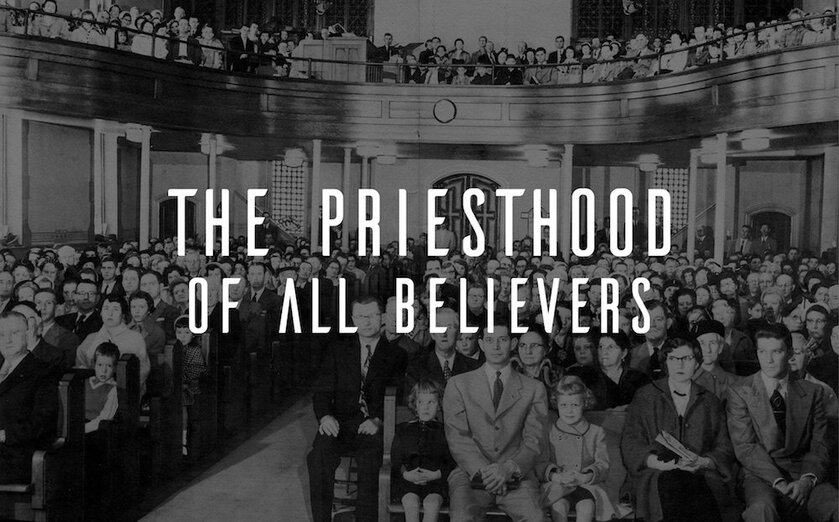The Homecoming of Christ in Our Hearts: Love and Obedience as the Welcome Mat
John 14:12-14
"Truly, truly, I say to you, whoever believes in me will also do the works that I do; and greater works than these will he do, because I am going to the Father. Whatever you ask in my name, this I will do, that the Father may be glorified in the Son. If you ask me anything in my name, I will do it."
Broad promises about prayer and faith for those who are His disciples [totally submitted to Christ], they who have denied themselves, picked up their cross and followed him (Mark 8:34).
This passage occurs during the Last Supper, in the Upper Room discourse (John 13–17), where Jesus prepares His disciples for His imminent departure, His crucifixion, resurrection, and ascension. He is reassuring them that His departure will not leave them powerless. Instead, through the Holy Spirit (introduced later in John 14:16–17), they will be empowered to continue His mission. It is the Holy Spirit that draws believers to Jesus Christ. And likewise the Holy Spirit leads them into Christ's mission. And finally, the Holy Spirit is indwelling and empowering them with life everlasting. Jesus declares that those who believe in Him will do the works He did; miracles, teaching, healing, and proclaiming the Kingdom of God. Even more astonishing, He says they will do "greater works."
Jesus is speaking to His closest followers during a pivotal moment, just hours before His arrest. And he makes this promise:
John 14:15-17
"If you love me, you will keep my commandments. And I will ask the Father, and he will give you another Helper, to be with you forever, even the Spirit of truth, whom the world cannot receive, because it neither sees him nor knows him. You know him, for he dwells with you and will be in you."
The promises in John 14:12–14 and 14:15–17 are not for casual believers but for those fully committed to Him, disciples who live in radical obedience and surrender.
John 14:20-21
"In that day you will know that I am in my Father, and you in me, and I in you. Whoever has my commandments and keeps them, he it is who loves me. And he who loves me will be loved by my Father, and I will love him and manifest myself to him."
And one of his followers there, (vs.22) Judas (not Iscariot, likely Thaddaeus or Jude) said to him, "Lord, how is it that you will manifest yourself to us, and not to the world?"
And it's a perfectly poignant and reasonable question to ask. How are you going to do this thing without the world knowing. How does Christ know those who are of the world from those who are of The Spirit?
The disciples likely have expected the Messiah to manifest Himself publicly to all, perhaps in triumph or judgment. Instead, Jesus speaks of a personal, spiritual revelation exclusive to His followers. This hints at the disciples’ ongoing struggle to grasp the spiritual nature of Jesus’ mission, which contrasts with the world’s expectations of a political or visible kingdom.
So how does Jesus distinguish his spiritual followers?
Jesus distinguishes His disciples ("of the Spirit" ) from the world based on their response to Him:
Through their faith and love. Disciples are those who believe in Jesus (John 14:12) and love Him, demonstrated by keeping His commandments (John 14:15, 21). This love is not mere sentiment but a commitment to radical obedience and surrender. And The Holy Spirit dwells within believers (John 14:17), enabling them to know Jesus and live for Him. Keeping Jesus’ commandments is the hallmark of true disciples (John 14:21). This obedience flows from a transformed heart, empowered by the Spirit, and marks them as distinct from the world’s rebellion or indifference. And the contrast is clear, those "of the world" reject this drawing, choosing self over surrender, religion over love, idolatry over submission, and thus remain separated from God’s truth.
It’s a deliberate choice to prioritize Christ’s will over personal desires, setting them apart from the world’s self-centeredness, religion without relationship, or idolatry.
Jesus said it succinctly like this:
John 14:23-24
Jesus answered him, "If anyone loves me, he will keep my word, and my Father will love him, and we will come to him and make our home with him. Whoever does not love me does not keep my words. And the word that you hear is not mine but the Father's who sent me."
The apostle Paul expressed this relationship beautifully in his prayer for the Ephesians...
Ephesians 3:14-19
"For this reason I bow my knees before the Father, from whom every family in heaven and on earth is named, that according to the riches of his glory he may grant you to be strengthened with power through his Spirit in your inner being, so that Christ may dwell in your hearts through faith—that you, being rooted and grounded in love, may have strength to comprehend with all the saints what is the breadth and length and height and depth, and to know the love of Christ that surpasses knowledge, that you may be filled with all the fullness of God."
He's describing Christ making his home within us. He's coming into our hearts, and he is perfectly at home within us. It's the intimate, transformative presence of Jesus in the hearts of His disciples. Jesus says, "If anyone loves me, he will keep my word, and my Father will love him, and we will come to him and make our home with him." The phrase "make our home" (Greek: monē, meaning a dwelling or abiding place) signifies a permanent, intimate residence of the Father and Son in the believer’s heart through the Holy Spirit (John 14:16–17). This isn’t a temporary visit but a settled, comfortable presence. It reflects a relationship of deep communion, where Jesus is fully welcomed and at ease in the heart of a disciple who loves and obeys Him. The word "dwell" (Greek: katoikeō) implies a permanent settling, much like a homeowner taking up residence in his own home. This isn't religion. This isn't about duty and works. This is a homecoming.
This homecoming is a relational reality, not a religious obligation. It’s the Father and Son, through the Holy Spirit (John 14:16–17), taking up residence in the heart of a disciple who loves and obeys Jesus, creating an intimate bond unlike anything the world's religions or secular societies can offer. Unlike religion, which can devolve into duty or ritual, this homecoming is about a heart surrendered to Christ, creating a space where He is fully at ease, unhindered by self-centeredness, idolatry, or worldly priorities.
It's like a welcome mat at the entrance to your heart, and on that mat is written...
"If anyone loves me, he will keep my word, and my Father will love him, and we will come to him and make our home with him"




















